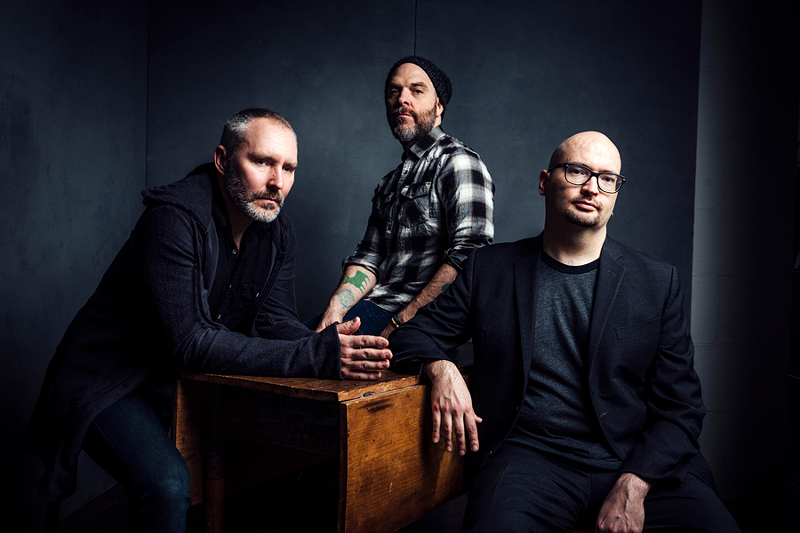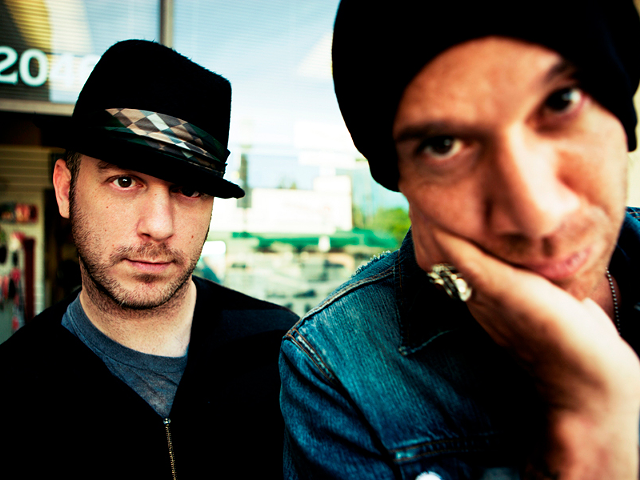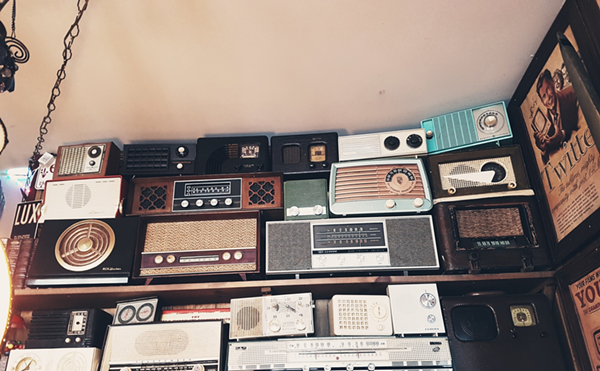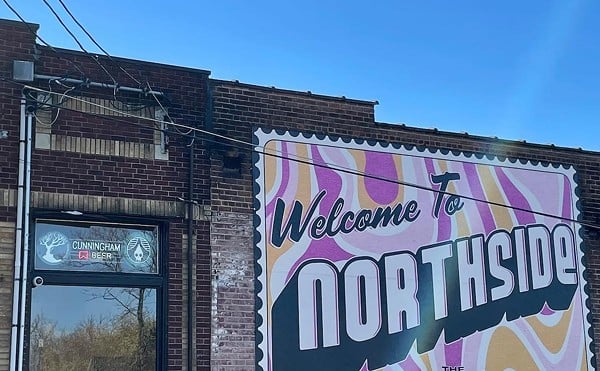Drummer David King, bassist Reid Anderson and pianist Ethan Iverson are traditional in that they play acoustic rather than amplified instruments. They are also idealistically democratic — together as The Bad Plus since 2000, but friends for far longer, the three men have operated the group as a leaderless collaboration for the entire time.
While primarily featuring their own compositions, the band is also fearless in taking on difficult projects that highlight towering avant-garde music achievements of the 20th century. The band has adapted Stravinsky’s The Rite of Spring for trio and, augmented with horns, played Ornette Coleman’s entire Science Fiction album live. At the same time as tackling these imposing works, The Bad Plus has also built a reputation for reinterpreting such Rock-era hits as Nirvana’s “Smells Like Teen Spirit” and Blondie’s “Heart of Glass.”
The band’s latest album, this year’s It’s Hard, is all covers, ranging from the Yeah Yeah Yeahs’ “Maps” and TV on the Radio’s “Staring at the Sun” to Johnny Cash’s “I Walk the Line” and Barry Manilow’s “Mandy.” The album also includes a Prince song, “The Beautiful Ones,” recorded just a month before he died. (It’s Hard isn’t all Pop adaptations — the trio also does Coleman’s “Broken Shadows.”)
“It’s very rare in the world of Jazz for there to be a 17-year band with no leader,” says King, 47, during a telephone interview from his Minneapolis home. (While the band is based in New York, Anderson and King are originally from Minnesota and Iverson from the small town of Menomonie, Wisc.)
“We run up against that leader-centric idea that the pianist must be the leader, but that’s not true,” King says. “In fact, (pianist Iverson) writes the least amount of original music. We’re all composers, so we don’t write together. Everyone is a fan of each other’s playing and writing, so there’s usually room for everyone’s personality to express things within the tune.”
The Bad Plus’ members have known each other and worked together long before formally starting the trio. King also has a healthy interest in AltRock, having played in the 1990s with a Minneapolis band, 12 Rods, which originated (without him) in Oxford, Ohio.
It’s Hard (the album’s title is a nod to The Who’s 1982 album of the same name as well as commentary on the economics of today’s music business) marks the first time in 10 years that The Bad Plus has interpreted Rock songs.
“We all brought in a bunch of tunes and whittled it down to some things we felt like we could do something with to honor the tune and try to make it our own,” King says.
Before explaining the choices of It’s Hard material or why The Bad Plus — a serious Jazz trio — finds inspiration in contemporary Rock and Pop, King first emphasizes the difference between “cover music” and “reinterpretations.”
“A ‘cover’ is really a Rock term that we’ve adopted because people use it,” he says. “But that’s not really used in Jazz. When you say a cover song, you can’t get out of your mind the idea of a band in a bar somewhere playing Rock covers. In a way, it really cheapens the tradition of what great Jazz is. There’s a huge portion of great Jazz music that comes from playing popular music.”
King favors another term in describing the way his trio reinvigorates Rock and Pop material, one that also explains how the band can find substance in songs that might not be considered as melodically substantive as Great American Songbook classics by Cole Porter or Rodgers and Hart, for instance. That term is “deconstruction,” a Post-Modernist word.
“For us, it feels like ‘deconstruction’ not only places (a contemporary song) in a more legitimate realm, but it also explains what we are doing,” King says. “We’re not just playing ‘Heart of Glass’ by Blondie with a piano rather than a voice. We have deconstructed it and rebuilt it in the image of the way we play. And what we’ve done takes a great amount of work to create a vehicle for improvisation.”
In doing so, The Bad Plus’ versions can take unexpected and sometimes-discordant turns that King describes as “thorny.” Indeed, the piano playing on It’s Hard’s “Mandy,” for instance, is miles removed from Manilow’s straightforwardly accessible arrangement.
“The three of us meet on the playing field of improvisational music,” King says. “We also have very strong streaks of avant-garde and Free Jazz. So when dealing with something that isn’t as harmonically rich as a ‘standard,’ that leaves a lot of room to explore the avant-garde. We’re interested in approaching it as we would play our own music, which typically has a thorny aspect. We’re interested in a little bit of tension — that’s why you sense an element of atonality and aggression in there. Those are tools we use when we need it.”
Something else The Bad Plus does with its covers, especially, that could be considered Post Modern, is keep the recorded versions concise, even while deconstructing and rebuilding them. Great Modernist Jazz innovators of the 20th century, like John Coltrane, could really stretch out their versions of standards like “My Favorite Things.”
“We like the idea that, at the end of the day, these are songs and not just vehicles to explore some long, introspective scenario,” King explains. “We like the idea that there isn’t too much we need to do to obscure it. No matter how cerebral or academic things can veer toward, we still want there to be some element of a song. And on a record, it’s best to get in there, state what we need to state and get out.”
THE BAD PLUS performs at the Xavier University Music Series in Xavier’s Gallagher Theater Friday. For more info/tickets, click here.






